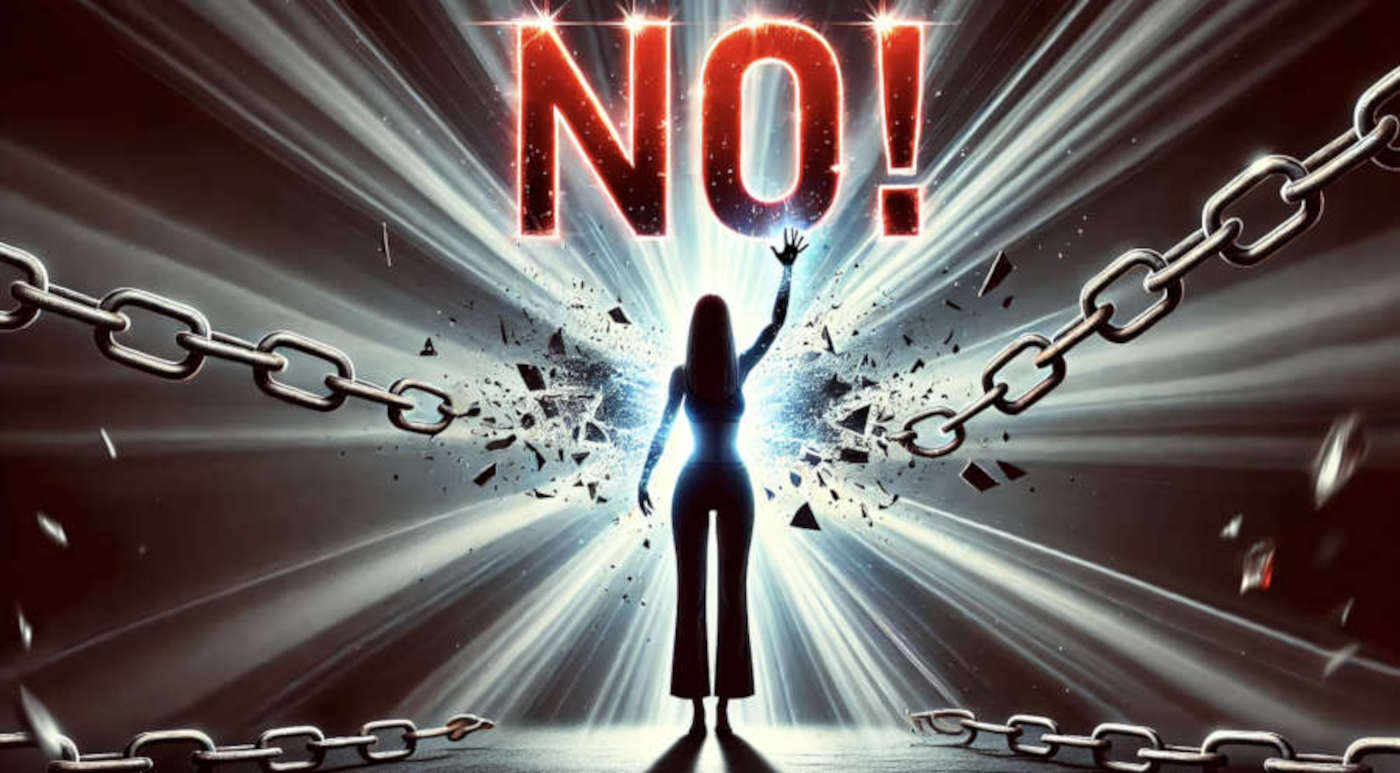
The Power of No!
There is a sacred, life-altering force in the word No. A force so potent, it can redirect destinies, restore vitality and sever the chains of emotional enslavement. But it is a word that many are too afraid to wield, particularly when it comes to people who expect our time, energy and emotional labour while putting nothing of substance into their own betterment.
This article is not for the motivated, the curious, the self- respecting seekers of growth. It is for the ungrateful, the entitled, the manipulators, the emotionally lazy and the psychological vampires who feed off others under the guise of helplessness and self-aggrandisement.
The Myth of Eternal Availability
There is a dangerous cultural myth that to be ‘good’, one must always be available. A myth that equates kindness with servitude and compassion with self-sacrifice. This lie is often clung to by those who have mastered the art of chronic neediness, perpetual crisis and perfected helplessness. They will wear down your boundaries, gaslight your intuition and bleed your schedule dry, while doing absolutely nothing to change their circumstances.
But here’s the truth: everyone is making their own life, whether consciously or urunconsciously. Every choice, every act of avoidance, every time someone refuses to do the work, it all shapes their reality. We are not here to rescue those who will not swim. We are not lifeboats for those who dive into stormy waters with a stone tied to their own ankles.
Procrastination: A Choice Disguised as a Condition
Much of what we call procrastination is in fact, a disguised resistance to personal responsibility. It is rarely about not knowing how to do something. It is about avoiding discomfort, fear of failure, or the confrontation of one’s inadequacies.
Psychologists such as Dr. Piers Steel, author of The Procrastination Equation, argues that procrastination isn’t a time management issue, but an emotional regulation one. Chronic procrastinators tend to have higher levels of impulsiveness, anxiety and a low tolerance for frustration. Instead of developing resilience, they opt for short-term relief – Netflix, distractions, gossip, while real progress stagnates.
Over time procrastination erodes self-trust. Every promise broken to oneself chips away at confidence and eventually, these people turn outward, looking for others to carry what they should have long learned to hold themselves. And often they look toward the givers the healers, the fixers. But it must stop.
The Courage to Walk Away
Saying No is not cruelty, it is clarity. It is a refusal to collude with dysfunction. When someone repeatedly refuses to act on their own behalf and we continue to show up, we become complicit in their self-sabotage. We may call it compassion, but often, it’s cowardice: a fear of confrontation, or a desperate need to be liked.
To those who are reading this and feel the sting of truth – good. Some pain is necessary. No gain without gain isn’t just a fitness mantra; it’s a psychological law. You cannot grow while being coddled. You will not evolve through avoidance. If you are not willing to challenge your own inertia, you do not deserve the support of others who are doing the work.
To those reading who have spent years giving, helping, only to be drained and discarded, hear this: your time is not a public utility. It is a gift. And it is time to give it only to those who rise with you, not those who anchor you in the shallows.
Energy Economics: Choose Your Investments Wisely
Time is finite. Energy is currency. Every moment spent indulging someone’s unwillingness to grow is a moment stole from your own becoming.
Dr. Judith Orloff, a psychiatrist and author of Emotional Freedom, coined the term ‘emotional vampires’ to describe people who sap others’ emotional energy. These individuals often suffer from personality disorders, unresolved trauma, or simply deeply ingrained laziness of the spirit. They manipulate guilt-trips, or play the victim to avoid taking real accountability. And they are experts at using your empathy against you.
The antidote? Radical boundaries. Silence. Disengagement. The unapologetic use of No.
Strategies for Reclaiming Your Power
-
Stop Explaining Yourself
You owe no one a justification for your boundaries. “No” is a complete sentence. Over-explaining invites argument and manipulation.
-
Recognise Guilt as a Weapon
Emotional vampires often use guilt to keep you in their orbit. Learn to sit with the discomfort of their disapproval. It is not your job to fix them.
-
Audit Your Relationships
Ask: Do I feel energised or depleted after speaking to this person? Do they ask how I am – or only tell me how bad their life is? Do they ever act on advice – or just complain repeatedly?
-
Model Responsibility, Not Rescue
The best way to teach people to take ownership is to refuse to carry their load. Let them face the consequences. That is their learning curve.
-
Redirect Energy into Self-Work
Every moment not spent propping someone else up is a moment reclaimed for your own evolution. Invest in your passions, your health, your business, your joy – and yourself.
Closing Words: A Declaration
To fellow givers: Withdraw your energy. You are not selfish but self-full and wise. Say No and say it often. Reserve your Yes for those who have the courage to rise. The world needs your power, not your burnout. Choose yourself each time and let the lazy find their own legs!
